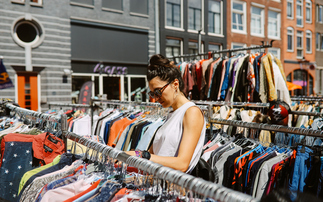Sustainability is part of Smurfit Kappa's DNA, says group VP Steven Stoffer
Back in 1990, when I joined Smurfit Kappa, a leading producer of paper-based packaging, sustainability for many businesses was often an added bonus. While many companies - ourselves included - were sustainable and understood it to be the right thing to do, it had yet to go mainstream. The last decade in particular however has seen sustainability come of age. Many companies now recognise sustainability to be inextricably linked to business growth. But what has driven this shift?
The external factors
Firstly there has been a growing recognition of the global challenges posed by issues such as climate change, limited natural resources, and population growth. In response, the international community has stepped up in developing laws, policies and goals calling on all stakeholders to play its part. From the 17 Sustainable Development Goals as part of the UN's 2030 Agenda for Sustainable Development through to the Paris Climate Accord and the EU's tough carbon targets, sustainability is now firmly on the global agenda. The result means that there has been a growing expectation on business to play its part.
Secondly, consumers themselves have also played an important role in driving up stronger sustainability standards. Consumers are increasingly making purchasing decisions - and willing to pay more - for products and services they see as sustainable or coming from socially and environmentally responsible companies. As an example, 2012 sales data from Sainsbury's showed that despite shoppers being more price conscious, sales of sustainably sourced food rose by 8.5 per cent. Companies are now adapting in order to seize the opportunities this growing segment of sustainable consumers creates.
The business factors
While these external pressures have helped make the sustainability case for lots of companies, there has also been a growing recognition and understanding that sustainability simply makes good business sense.
Sustainability is now an explicit part of business strategy and seen as a key differentiator. Take Smurfit Kappa for example - we want to be a globally admired business that delivers secure and superior returns for our stakeholders. Having sustainability as part of our DNA and taking a customer-first approach will make this possible, alongside nurturing our employees and the local communities in which we operate. Only then can we create value for our shareholders.
The idea that sustainability and business profit are interlinked is now at the heart of many business strategies - from Nestlé's ‘Creating Shared Value' model through to Unilever and its ‘Sustainable Living Plan'. Businesses understand better than ever before that working towards global sustainability will open up new opportunities and drive innovation.
The transparency factors
Undoubtedly however, sustainability across a supply chain and delivered at scale brings its own challenges. It requires honesty and transparency. Over the years I've seen companies struggle to meet their sustainability commitments and goals for this very reason. The last decade has brought with it though a new rigour to sustainability reporting and a move to formally monitor and measure.
Transparency is demanded now at almost every level with sustainability reporting a vital part of shareholder, employee and stakeholder relations. In a competitive environment it can be a key differentiator for building trust.
For Smurfit Kappa, 2007 marked the year in which we launched our first ever sustainability report. We're a business that believes in facts and evidence, realising that to make progress we needed strong, reliable data coupled with clear-cut sustainability targets and goals.
The next decade
As I reflect back on the last decade of sustainability a key thing that I've learnt is that business can be a genuine positive force for good. With impacts across the value chain, companies like ours can drive positive change throughout - whether that's the sustainable sourcing of raw materials or the lowering of the environmental footprint of customers and consumers.
The work of sustainability though is never done. None of us can simply sit back and rest on our laurels. The next 10 years will see the global economy shift as populations rise and the demand for services and goods grows.
I believe that the result will be a move away from linear to new circular flows and business models. And it will be this move that will unlock and help tackle some of the planet's biggest ongoing sustainability challenges.
Steven Stoffer is group vice president for development at Smurfit Kappa.
To find out more about Smurfit Kappa's approach to sustainability and to read our 10th annual sustainability report click here.





